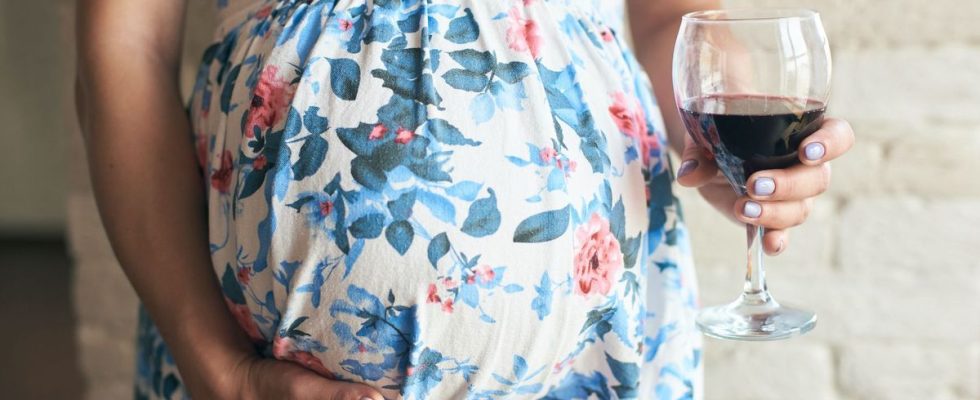Published on
Updated
Reading 3 min.
September 9 is the day to combat Fetal Alcohol Disorders. Although we no longer doubt the harmful effects of alcohol on baby’s health, moderate consumption is still too often tolerated by pregnant women themselves. We talk about it with Dr Denis Lamblin, president of SAF France.
No alcohol during pregnancy. The formula is not a slogan, but an imperative to respect in light of scientific advances on the subject. Fetal alcoholism, even from an occasional drink, is responsible for more than 400 different disorders, including mental disorders, sometimes late in the child’s development (epilepsy, dys disorders, bipolarity, etc.). Against this scourge, only awareness can improve the situation. Where are we in France?
Better knowledge of the dangers of alcohol during pregnancy
On the occasion of the 7th SAFTHON organized around this International Day, an OpinionWay study commissioned by the SAF France association today reveals the evolution of French people’s knowledge of the dangers and habits of alcohol consumption during pregnancy. since 2020. Thus:
- 54% of the French population has already heard of fetal alcohol syndrome today compared to 49% in 2020;
- In 2023, the French are more likely to identify disorders that may be linked to alcohol consumption during pregnancy and are more aware that they can be detectable at different times in the child’s development through to adulthood.
- In France, miscarriage is the main consequence identified for 72% of parents.
But pregnant women who always consume moderately
However, a second OpinionWay study among new parents shows that 27% (national average) of women continue to consume alcohol, even in small quantities, during their known pregnancies. An average which even rises to 38% in Ile-de-France.
“But even a glass of wine or beer can have toxic teratogenic repercussions (which can cause malformations) that are more dangerous than tobacco. Furthermore, we are all unequal when it comes to alcohol, both women and babies. After-effects can occur with very little alcohol in one woman and none in another with a larger dose. The rule is therefore zero alcohol for 9 months. The glass of wine or beer, even if it’s a minimal risk, we don’t take it, that’s all.” explains Dr Denis Lamblin, determined to change the lines. A message still too little understood, it seems.
In Reunion, an awareness model that works
The other important information from this survey is the difference in figures that may exist between regions. Thus in Reunion, the figures are at their lowest, since only 7% of pregnant women today persist in drinking moderately. A figure which proves that the objective is possible.
“The dangers of low consumption during pregnancy are more recognized in Reunion than anywhere else in France” confirms Dr Lambin. The risks of promoting FASD from the first drink are recognized in Reunion in 90% of people. For what ? Quite simply because Reunion has made the choice for 7 years to raise awareness among its inhabitants as much as possible. This is where the origin of the logo on alcohol bottles was born because women are more daring to talk about their problems. When you have people speaking, school interventions, messages recalled in the streets and in sports advertising, the message ends up getting through.”
However, according to him, investment is not yet sufficient in mainland France, “Some doctors play down the effects of moderate consumption and communities do not play the game. What is needed today is co-responsibility, citizen mobilization of all of society, the government, health stakeholders , social. Let everyone come together around these important messages: zero alcohol.“However, the president of the SAF remains convinced, it is only by knowing all the risks and consequences of fetal alcohol abuse, at all levels, that we will be able to reduce the figures:
“When we see the issues, we say to ourselves that knowledge is the real vaccine against this health problem.”
